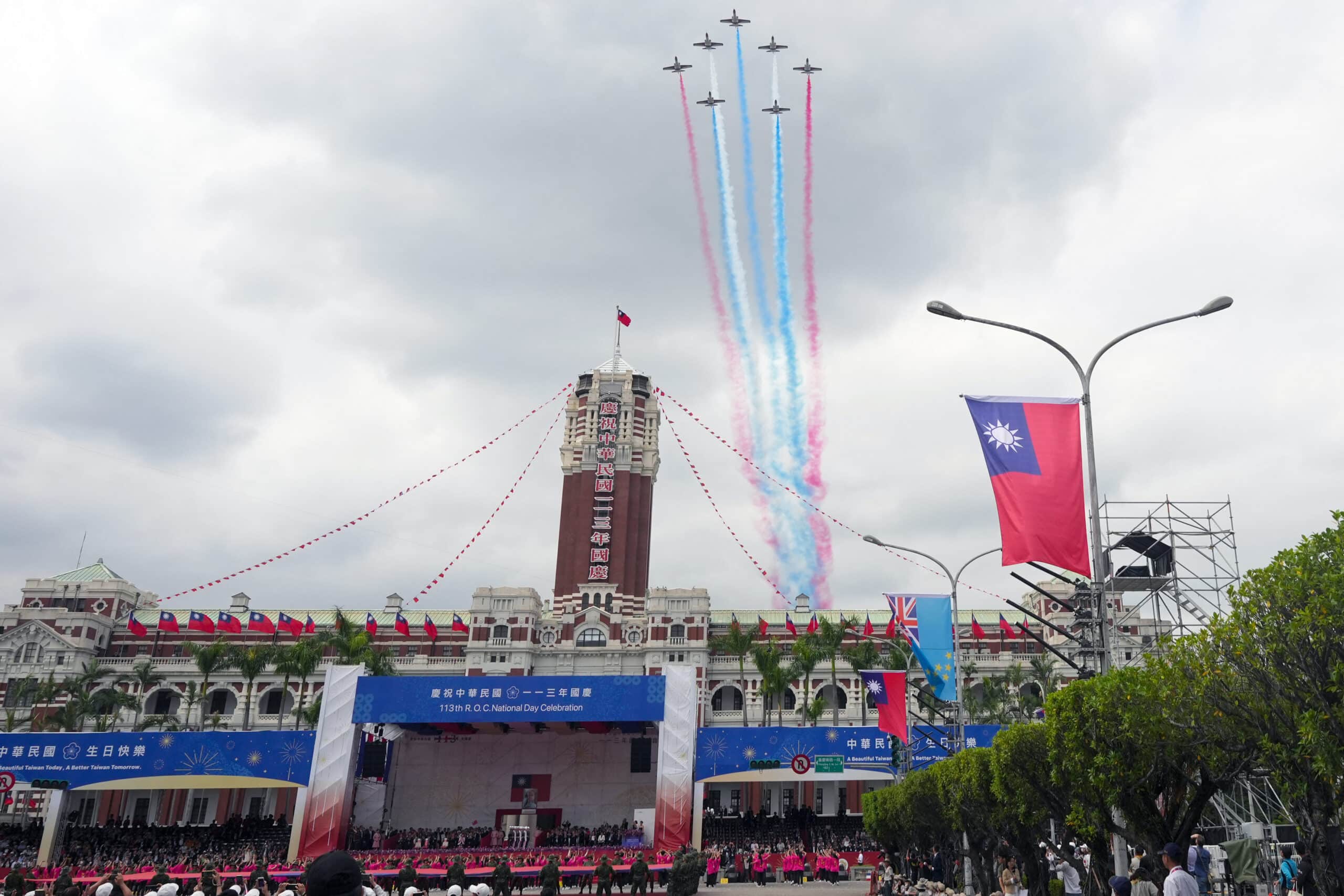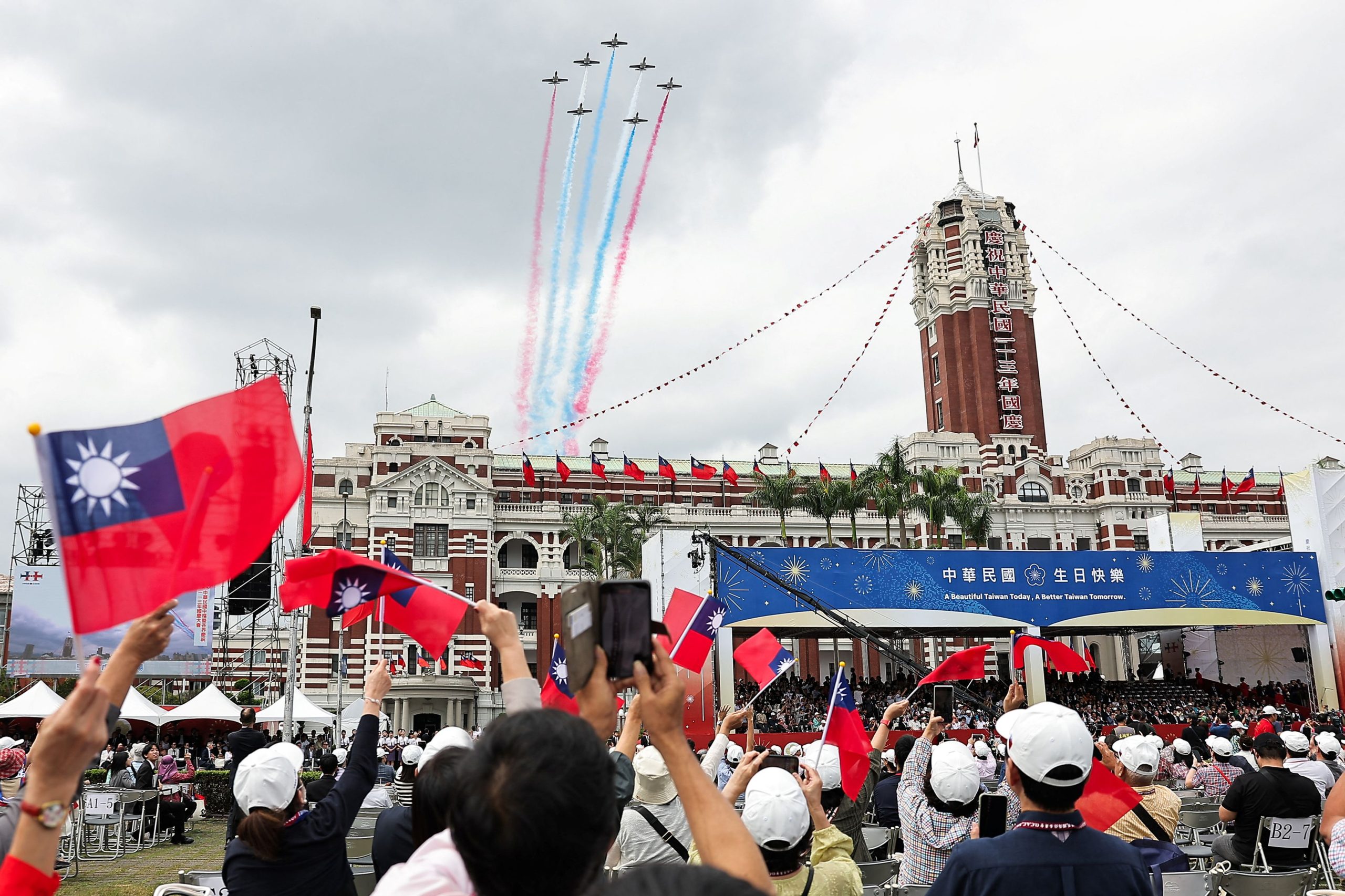In a time marked by heightened tensions in the Asia-Pacific region, Taiwan’s President Lai Ching-te delivered a pivotal National Day speech, underscoring the island’s commitment to its sovereignty in the face of escalating pressures from China. Addressing the nation from Taipei on an overcast Thursday, Lai’s remarks reverberated not only through Taiwanese society but also across the geopolitical landscape, eliciting anticipated reactions from Beijing and reaffirming Taiwan’s position in international diplomacy.
A Firm Stand Against Encroachment
In his inaugural National Day address, President Lai reiterated a robust stance against what he described as China’s “annexation or encroachment” on Taiwan’s sovereignty. This assertion is particularly significant given the context of increased military maneuvers by China in the Taiwan Strait and its ongoing attempts to diplomatically isolate the island. Lai’s declaration emphasizes that Taiwan will not yield to external pressures, a sentiment that resonates deeply with the Taiwanese populace, who view the island’s democratic values and self-governance as fundamental to their identity.
“Taiwan is a sovereign nation, and it is unacceptable for any external power to dictate our future,” Lai proclaimed, directly addressing the challenges posed by Beijing’s assertive posture. This emphasis on sovereignty serves as a cornerstone of Lai’s administration and is likely to bolster domestic support amid growing concerns about national security.

Diplomatic Maneuvering Amid Rising Tensions
Lai’s speech also highlights the delicate balance Taiwan seeks to maintain in its diplomatic relations, particularly with the United States and other allies. While standing firm against China’s claims, he extended an olive branch, expressing a willingness to collaborate on pressing global issues such as climate change and public health. This approach reflects a broader strategy aimed at fostering international partnerships while reinforcing Taiwan’s status as a responsible player on the global stage.
The President’s remarks come at a crucial juncture in Taiwan’s diplomatic landscape, as the island seeks to strengthen its ties with like-minded democracies while navigating the complexities of regional power dynamics. Lai’s commitment to peace and stability in the Taiwan Strait indicates a recognition of the importance of dialogue and cooperation in mitigating tensions.
Domestic Concerns: Housing Prices and Social Stability
Beyond foreign policy, Lai also addressed pressing domestic issues, particularly the skyrocketing housing prices that have plagued many Taiwanese citizens. His acknowledgment of the need for effective measures to control the housing market underscores the administration’s understanding that economic stability is intrinsically linked to national security. High housing costs can lead to social discontent, which, in turn, could be exploited by adversarial forces seeking to undermine Taiwan’s internal cohesion.
By pledging to tackle these economic challenges, Lai aims to bolster public confidence in his leadership while simultaneously addressing potential vulnerabilities that could be exploited by external actors. This dual focus on both security and domestic welfare illustrates a holistic approach to governance that prioritizes the well-being of the Taiwanese people.
Anticipating Beijing’s Response
Lai’s resolute statements are poised to elicit a sharp response from Beijing, which views Taiwan as a breakaway province that must ultimately be reunified with the mainland. In recent years, China has ramped up its military activities around Taiwan, conducting exercises that simulate an invasion and increasing diplomatic pressure on countries that recognize Taiwan.
China’s Ministry of Foreign Affairs has already expressed its discontent with Lai’s remarks, characterizing them as provocative and inflammatory. Analysts anticipate that Beijing will likely respond with a combination of diplomatic denunciations and military posturing, further escalating tensions in the region. This cycle of provocation and counter-provision underscores the fragile nature of peace in the Taiwan Strait and highlights the challenges faced by Taiwan in its pursuit of international recognition and security.

The Role of the International Community
As Taiwan navigates this precarious geopolitical landscape, the role of the international community becomes increasingly vital. The United States, in particular, has expressed its commitment to supporting Taiwan’s self-defense capabilities while advocating for a peaceful resolution to cross-strait tensions. Lai’s speech aligns with this broader international narrative, emphasizing Taiwan’s willingness to contribute to regional stability.
The recent strengthening of U.S.-Taiwan ties, exemplified by arms sales and high-level diplomatic exchanges, signals a growing recognition among key global players of the importance of Taiwan’s sovereignty. By positioning itself as a proactive partner in addressing shared challenges, Taiwan aims to garner further support from the international community and reinforce its legitimacy on the world stage.
A Path Forward
President Lai Ching-te’s National Day speech encapsulates the complex interplay of security, diplomacy, and domestic policy that defines Taiwan’s current trajectory. His unwavering commitment to sovereignty, coupled with a willingness to engage on critical global issues, sets the tone for his administration’s approach to both domestic and international challenges.
As Taiwan faces the dual threats of external aggression and internal discontent, the balancing act between maintaining security and fostering diplomatic relationships will be paramount. The coming months will likely be a litmus test for Lai’s leadership as he navigates the turbulent waters of cross-strait relations and strives to secure a stable future for Taiwan amidst the ever-changing geopolitical landscape.
In a world where the stakes are high and the margins for error are slim, Taiwan’s ability to uphold its sovereignty while fostering collaborative international relationships will be critical. The international community must also remain vigilant, recognizing that Taiwan’s stability is integral to the broader security of the Asia-Pacific region. As Lai embarks on this challenging journey, his leadership will play a crucial role in shaping the future of Taiwan, influencing not only the island’s destiny but also the delicate balance of power in the region.



